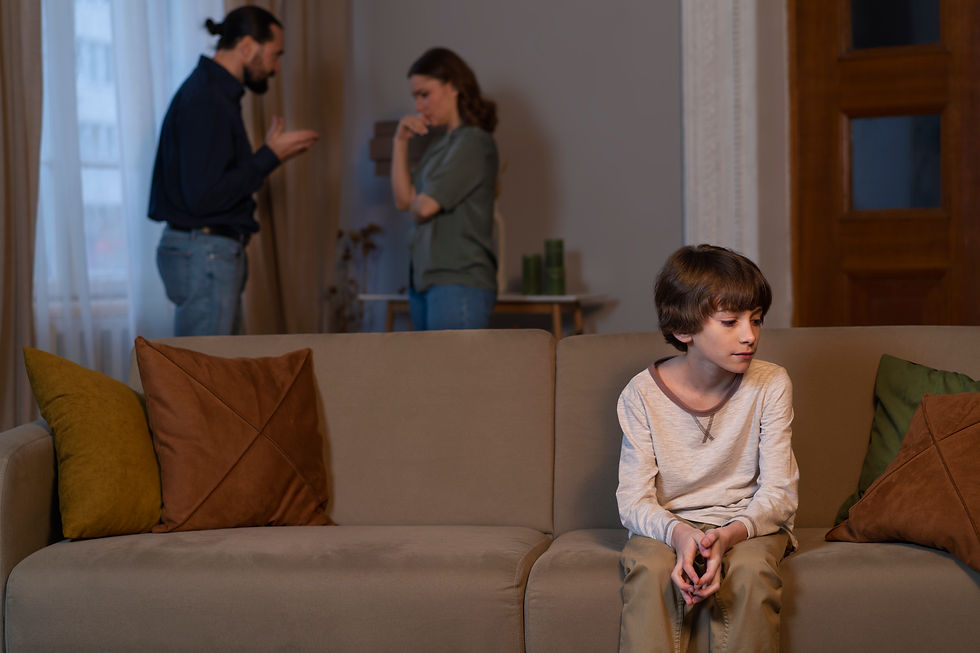🤝 The Healing Power of Hugs: Why Physical Touch Matters More Than You Think
- Lana Alencar

- Jun 23, 2022
- 3 min read
Updated: Jun 18, 2025

In a world that often moves too fast and demands too much, sometimes the most healing thing we can offer — or receive — is incredibly simple: a hug.
Science agrees. A growing body of research shows that hugging isn't just comforting — it’s biologically powerful. Whether it's a warm embrace with a loved one, a cuddle on the couch, or even a quick squeeze before leaving the house, physical touch helps our bodies and minds feel safe, seen, and connected.
But for many of us, especially after the long seasons of social distancing and isolation, touch has become rare — even awkward. And we’re feeling the impact.
🧠 What Happens in the Brain When We Hug?
When you hug someone (for at least 20 seconds), your body responds by releasing oxytocin, often called the “love hormone.” Oxytocin plays a powerful role in helping us feel emotionally bonded, lowering anxiety, and creating a sense of trust and closeness. It’s also a natural stress buffer, calming the nervous system and helping the body shift out of “fight or flight.”
But that’s not all:
🤍 Cortisol (the stress hormone) drops during sustained physical touch
❤️ Blood pressure and heart rate tend to decrease
🛌 Sleep quality can improve with regular affectionate touch
💪 Inflammation levels and pain perception can be reduced
😊 Serotonin and dopamine, two feel-good neurotransmitters, also get a boost
In short: hugs help heal.
💔 The Cost of Touch Deprivation
The past few years have taken a toll on all of us, but one of the more invisible losses has been physical connection. Many people still don’t feel safe hugging others. For couples, especially, this touch deprivation can create emotional distance — even in committed relationships.
When affection disappears, misunderstandings grow. Intimacy fades. We may not even realize how much we miss touch until we’re feeling lonely in a room with someone we love.
If you’ve been feeling:
Less connected to your partner
Uncomfortable with closeness
Emotionally distant but unsure why
… it might be time to look at how touch has changed in your life.

💞 For Couples: Reconnecting Through Affection
Touch doesn’t have to be sexual to be intimate. In fact, everyday gestures — a hand on the back, sitting close on the couch, a long hug at the end of the day — can reignite emotional safety and connection in a relationship.
Touch communicates, “I see you.” “I’m with you.” “We’re safe.”
If you and your partner have drifted into a touchless routine, try:
Hugging intentionally, even for 20 seconds
Holding hands when talking or walking
Pausing for small moments of physical presence, like resting your hand on their leg or shoulder
These moments may seem small, but they carry deep meaning — and your nervous system knows it.
🤲 How Have You Dealt with the Loss of Touch?
Whether you’re single, partnered, living with family, or navigating a season of isolation, it’s okay to admit that you miss touch. It’s a basic human need, not a luxury. Being touched — and touching others with care — tells the brain, “I belong. I’m connected. I’m safe.”
If you feel safe and ready, offer a hug to someone you trust. Linger just a little longer. Let it soften you.
And if this is something you’re still grieving or working through, you’re not alone. Counselling can help you explore the emotional impact of touch deprivation and find new ways to connect — with yourself and others.
Lana Marinho Bezerra Alencar, M.A. Counselling
Associate Professional Counsellor, PACCP #769MB22
Specializing in women’s struggles, relationship dynamics, identity and personal growth.
📚 Research and Sources:
Light, K.C., et al. (2005). More frequent partner hugs and higher oxytocin levels are linked to lower blood pressure and heart rate in premenopausal women. Biological Psychology, 69(1).
Field, T. (2010). Touch for socioemotional and physical well-being: A review. Developmental Review, 30(4).
Grewen, K.M., Anderson, B.J., Girdler, S.S., & Light, K.C. (2003). Warm partner contact is related to lower cardiovascular reactivity. Biological Psychology.
Coan, J.A., Schaefer, H.S., & Davidson, R.J. (2006). Lending a hand: social regulation of the neural response to threat. Psychological Science.
Holt-Lunstad, J., Birmingham, W., & Light, K.C. (2008). Influence of a “warm touch” support enhancement intervention among married couples on ambulatory blood pressure, oxytocin, alpha amylase, and cortisol. Psychosomatic Medicine.You were made for connection. 💛
.png)



Comments